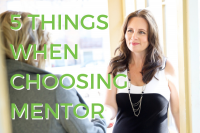
Jo Burston. Photo: supplied.
A mentor can be one of the most invaluable assets for any entrepreneur or person looking to drive their business or career forward.
Mentors are a source of knowledge and critical to helping entrepreneurs grow and learn throughout the whole startup process.
Jo Burston, CEO of Job Capital and founder of Rare Birds, has been a mentor 12 times and a mentee three times throughout her career.
Having grown Job Capital into a $37 million enterprise and now onto her seventh business venture, Burston says that mentorship has been critical to her own success.
“I think there’s often a misconception and people don’t understand the intrinsic difference between a business coach and mentor.
“A business coach is someone who is strictly working on the fundamental processes of your business that may or may not have the experience you’re seeking in the journey you’re trying to go on. But a mentor looks at you as a whole person and whole entrepreneur.
“It’s not just how you work in your business life but it’s about who you are, what your drivers are, what your purpose is, how you take care of yourself as well as how you retain a network of support whether it’s family, friends or other business people,” says Burston.
Rare Birds and Ernst & Young recently held a ‘Meet my mentor’ panel discussion, which gathered some of Australia’s most influential women entrepreneurs to discuss the role that mentors have played in their personal and professional development and the best ways of sourcing them.
Here are some of the key lessons.
1. Reach out to complete strangers
If the thought of cold-calling a potential mentor to ask for business help terrifies you, then you need to get over it, because the answer will almost always be ‘yes’, said Switch Automation founder, Deborah Noller.
Noller says reaching out to complete strangers is often considered “a very American thing to do”, but she says most people are happy to give all entrepreneurs time for a quick chat.
“In my experience anyone who reaches out, almost nobody says ‘no’ to them,” she says.
OnTheGo founder Mick Spencer says he cold-called two leading business people to see if they would offer him help. One was Jo Burston, who is currently his mentor. The other was Paul Zahra, former chief executive of David Jones.
“I reached out to Paul, because I knew he’d help and I really admired his personal journey, as well as his time at David Jones and the transformation there,” he said.
2. Don’t let a fear of rejection stand in your way
Spencer says indecisiveness and the thought of being rejected can prevent entrepreneurs from making the right decisions, but overcoming this fear is essential.
“I dropped out of uni when I started the business, I have a lot of people come to me with an idea and just want the validation to go out there and do it, and I suppose I didn’t know whether what I was doing was ever going to work out or not, but I did what my old man always told me, “never let fear stand in your way”.
3. Don’t think one-size-fits-all
“Mentoring is like a palette, you need different colours at different times,” says Burston who has three mentors herself: a serial entrepreneur, a corporate and one who straddles both.
“I like the idea that if I have multiple people surrounding me, I can drag in what I need when I need it from those individuals rather than just taking the journey with one person.”
Spencer says Burston encouraged him to have mentors with different business backgrounds and to find someone who could help him develop the retail component of OnTheGo.
“In my first year of business, when I was in my parent’s garage with boxes to the ceiling, Jo said, ‘write down all the people you want to learn from’ and I wrote down all the people I thought were amazing, not just in terms of what they’d done in business, but as individuals.”
From there he approached Zahra, who he describes as his “CEO mentor”. Spencer says the value proposition for entrepreneurs being mentored is the chance to talk to someone, “who has been in those shoes”.
“They can help you understand what it takes to succeed and they help you get there a whole lot faster. You can learn a lot more than you would if you tried to run your business without that help, because everyone makes mistakes,” he says.
4. Look for a mentoring style that suits you
Pulse Marketing founder Lauren Fried says the way mentoring relationships work varies from one relationship to the next and there is no clear line where the sharing of business information stops and personal details begin.
When she was looking for a mentor, she says she wanted someone who would challenge her, not just lead her.
“One of my mentors simply talks to me in questions, that’s all he does. He’s not questioning what I’m doing, he’s asking questions so we can talk about them. He does that across my personal and business life and I need that because they’re very closely linked.”
5. Don’t think, ‘how much can I get out of this mentor?’
How you connect with a potential mentor is important, because it sets the tone for the relationship, says CP Communications founder Catriona Pollard.
“It’s about how you actually reach out to them and how you build the relationship with them as well. It’s not just about ‘how much can I get from this mentor?’ It’s about going in knowing if you want this to be long term or that you can actually help as well. It’s a sharing of energy,” she says.
But beyond this, Burston says it comes down to respect.
“For me, it’s around absolute respect for their time, energy and expertise,” she says.
“I’m always really mindful that my mentors are usually more busy than I am. I’m respectful of how they can fit me into their schedule versus the other way around.
“For example, I was on a phone call to London because my mentor was there and we talked at midnight. I found in my journey, where I’ve been able to fit in with them has been really successful because it shows my respect for their time.”
6. Don’t underestimate the value of the relationship
Burston says she has been able to meet individuals who she would never have come into contact with had it not been for her mentors.
“The biggest impact for me has been the doors it has opened — and that’s globally. Without doubt, I have met people and have done business and will do business in the future with people I would never have met in my life,” she says.
“The impact of that is that their radar is on me, so when they’re meeting people or talking to people that perhaps are interested in Rare Birds or Job Capital or one of my other businesses, they’re laying the groundwork for me and I get a message pretty quick to say, ‘Jo, I need to introduce you’ or ‘Jo, you need to meet this person and need to talk to this guy’.
7. Be prepared to make big changes
Burston says that being mentored gave her the ability to take on challenges and to grow her companies into international enterprises.
“I get to have people around me, my mentors, who are extraordinary visionaries – they take it to a whole new level. I’ve learnt to look at the world as a much bigger place now.
“The vision they’ve shared with me has brought on a belief in my own capabilities to create a global company. I previously thought my business would just be an Australian company, but now with everything I do, I can’t help but think: how do I make it scalable? How do I make the most amount of money possible, how do I make it global from day one?”
This article was originally published on Business Insider 8th August 2015. Read the original article here.









Leave A Comment